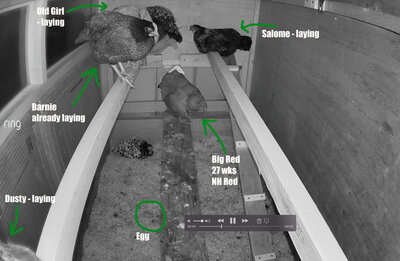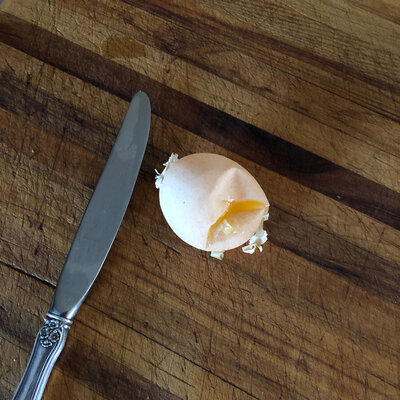NZChookdom
Chirping
I have a compound question and am hoping you learned folk can help!
This morning I found a very soft shelled egg on the coop floor under the roost. Two mornings ago I found a damaged hard shelled egg in a similar spot (and it was a double yolk).
I have chook cams but can only make out a time frame when the egg appeared. The girl directly above (or near) the egg is one who is already laying and knows where to go. And she laid an egg yesterday. But can one "slip" out??
Or is this a new girl who doesn't have her clock synchronised yet? The girls move around in the night and there are two who do not roost at all but stay on the walkway/floor. It could be the NH red as she is old enough (27+ wks) and her comb is getting redder. And from the walkway it would softly land on the coop floor.
Any ideas????
This morning I found a very soft shelled egg on the coop floor under the roost. Two mornings ago I found a damaged hard shelled egg in a similar spot (and it was a double yolk).
I have chook cams but can only make out a time frame when the egg appeared. The girl directly above (or near) the egg is one who is already laying and knows where to go. And she laid an egg yesterday. But can one "slip" out??
Or is this a new girl who doesn't have her clock synchronised yet? The girls move around in the night and there are two who do not roost at all but stay on the walkway/floor. It could be the NH red as she is old enough (27+ wks) and her comb is getting redder. And from the walkway it would softly land on the coop floor.
Any ideas????





